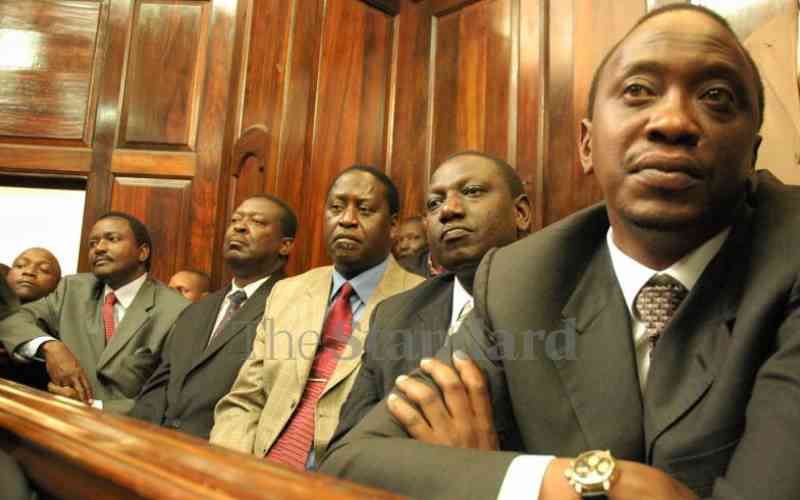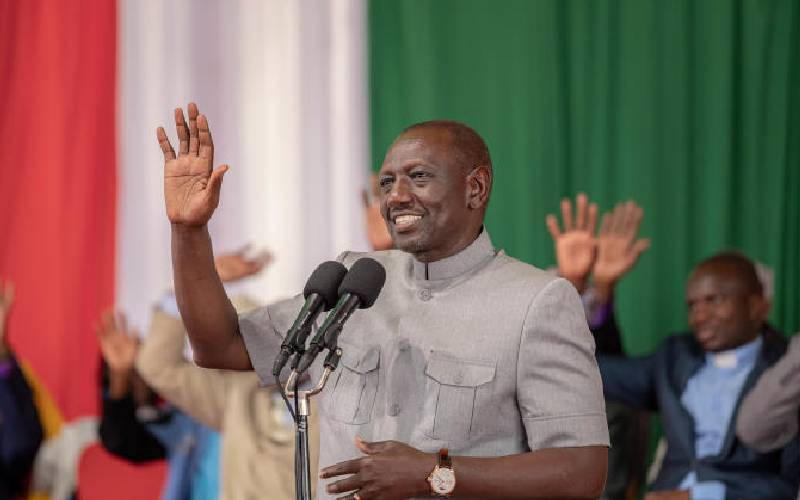Demos dilemma for hustlers as police brutality causes anguish, loss of lives
Kenyans yet again find themselves between a rock and a hard place over the high cost of living as political rivalry between Kenya Kwanza and Azimio intensifies over anti-government protests.
Azimio’s resolve to continue with protests on Wednesday, will leave the hustler either ducking bullets and teargas to push the government to lower the cost of living or cower under fear of exercising their democratic right over violent police crackdown on the opposition.
The rising cost of living, a difficult business environment and the poor economy which have been worsened by the Finance Act 2023 that seeks to increase taxation mean that Kenyans risk being losers once again in the push to have the government reduce the burden on their shoulders.
In recent weeks, anti-government demonstrations called by Azimio have drawn protesters and goons creating a recipe for chaos as police move in to maintain law and order.
So far, more than 30 people have been shot dead by police since the anti-government demonstrations started in March. Despite innocent wananchi being felled by police bullets, the government has continued pushing the narrative that the demonstrators are criminals behind vandalism and looting of businesses.
- .
Keep Reading
- Fresh dollar crisis looms as CBK faces Sh567b fuel bill
- Sting of political arrests as police up crackdown on Azimio allies
- Two decades of bad choices to blame for current predicament
- President woos locals with bag of goodies
However, the government’s narrative is not entirely accurate. According to Article 37 of the Constitution, guarantees Kenyans the right to demonstrate and picket. While it is true that some goons may take advantage of the protests to commit crime, it remains the responsibility of the police to maintain order without infringing upon the right to protest.
Rather than restricting this fundamental right altogether, the authorities should focus on preventing criminal elements from disrupting peaceful demonstrations.
The politics around the demonstrations threaten to erode the constitutional right of assembly.
In a joint statement, National Assembly Majority Leader Kimani Ichung’wah and Senate Majority Leader Aaron Cheruiyot claimed that Azimio was paying protesters to wreak havoc across the country, in effect dismissing the push to lower the cost of living.
“The violent demonstrations witnessed in recent months have been financed by Odinga’s sponsors in the former government. Tens of millions of shillings are shipped across the country ahead of every demonstration,” the two lawmakers alleged.

However, the Kenya Conference of Catholic Bishops (KCCB) took a different stance, stating that public dissent against the government comes from severe economic distress and additional burdens through the Finance Act imposed on Kenyans.
The bishops urged the president to repeal the Act.
The bishops further criticised the police for using excessive force on protestors and stressed that they should focus on dealing with goons to ensure that peaceful demonstrations are conducted in accordance with the law.
They condemned acts of violence and abuse of power by the police, emphasizing that such behaviour undermines the fundamental principles of human rights, justice, and the rule of law.
“Police cannot take advantage to brutalise innocent Kenyans. Such acts are unacceptable and must not be tolerated under any circumstance,” said Archbishop Anthony Muheria.
Despite receiving praise from President William Ruto, the National Police Service has failed to adhere to its constitutional mandate of facilitating the right to demonstrate by providing security to demonstrators and public property.
What the police have done is indiscriminately clamp down on protests and use force on anyone who shows up in public to criticise the government.
Having been part of the constitution-making team, constitutional lawyer Bobby Mkangi argues that the primary responsibility as far as the right to demonstrate is concerned lies with the state.
“In as much as every right holder has a responsibility, the responsibility cannot be swung so that the right holder is also the duty bearer. The state’s job is to facilitate the enjoyment of this right,” said Mkangi.

This divisive situation has left Kenyans in a state of confusion. On the one hand, if they choose to participate in demonstrations, they risk arrest, serious injuries, or even fatal encounters with the police. On the other hand, those who refrain from protesting find themselves at the mercy of a government that has been accused of ignoring the concerns of its citizens.
“Many Kenyans feel unheard and overlooked by the government,” said Bishop John Oballa.
So far, President Ruto’s significant government policy changes are being challenged in court leading to the suspension of the implementation of the Finance Act, 2023.
Stakeholders who challenged the Act argued that it failed to acknowledge the realities of the economic situation of the day and would accentuate the economic difficulty experienced by Kenyans.
The government defends its policies as necessary to address the economic challenges facing the country and to fund vital development projects. However, the opposition and citizens argue that the burden falls disproportionately on the shoulders of mwananchi, already grappling with the increasing cost of essential goods and services.
As tensions rise and the standoff between the government, opposition and demonstrators persists, the future remains uncertain for Kenyans. They find themselves navigating a complex landscape, torn between expressing their legitimate concerns through constitutionally granted freedoms that seem not to be recognised by the government of the day. BY THE STAR












Post a Comment